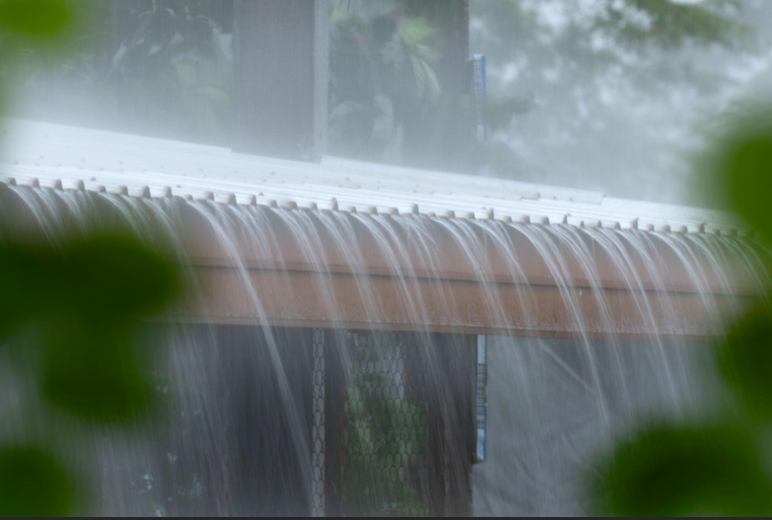It is tricky to underestimate the havoc that storms can unleash on the roofs of homes. Torrential rains, sledgehammer-like hail, and powerful winds can lead to significant damage, such as broken shingles, cracked tiles, dislodged gutters, and others. These issues, if not promptly addressed, can escalate into severe structural problems that hit homeowners hard in their pockets. It’s in these circumstances that enlisting the services of a trained, professional roofer becomes an indispensable step in safeguarding the durability and safety of a home. In this comprehensive guide, readers will learn about the crucial aspects of understanding storm damage, the importance of engaging licensed and insured roofers, the strategies of sourcing reputable roofers, what questions to ask before hiring, and a clear understanding of roofing contracts.
Understanding the Extent of Storm Damage
Detecting storm damage isn’t always straightforward. Some signs are obvious: missing or split shingles, loose roof tiles, and water stains on ceilings or walls. Displaced gutters are another hint that the winds were too much for your system.
Yet, many damages lurk below the surface. Tiny punctures, flaws in flashing, or fine cracks in tiles can escape casual inspection — but over time, they allow water infiltration, which can lead to mould or wood rot. What’s worse, water might seep into hidden corners of the structure where you won’t immediately see it.
That’s where a post-storm roof inspection by a professional becomes invaluable. An experienced roofer won’t just look at visible signs; they’ll assess the roof holistically, uncover hidden weaknesses, and advise a plan of action. The faster you act after a storm, the better your chances of preventing secondary damage and mounting repair costs.
The Importance of Hiring a Licensed and Insured Roofer
Choosing a roofer should not be a decision taken lightly. Licensing and insurance are two vital criteria for a contractor worth their salt. Licensing ensures that the roofer has passed a minimum proficiency standard exhibiting adequate skills and knowledge, and it holds them accountable to the standards and regulations of the roofing industry.
In contrast, insurance provides a safety net for both the roofer and homeowner. Should an accident occur during the repair works, a roofer’s insurance could cover the related medical costs. Similarly, the homeowner’s insurance can shield against unforeseen property damages that occur during the project. Engaging unlicensed workers can lead to severe ramifications, including poor-quality repairs, building code violations, and litigation costs, which can add up in the long run. Hence, it’s always wise to verify a roofer’s credentials and insurance status by checking with local licensing boards and seeing proof of insurance coverage.
Tips for Finding Reliable Roofing Contractors
Here are practical steps you can take when searching for trustworthy roofers:
- Check online reviews and ratings — Use well-known platforms where homeowners leave genuine feedback. Look for patterns (consistent praise or complaints) rather than isolated comments.
- Ask for personal referrals — Neighbours, friends, or family who have recently had roof repairs can tell you who did good work — or who caused headaches.
- Check professional affiliations — Memberships in roofing associations or industry bodies can reflect a roofer’s commitment to standards.
- Look at a portfolio — Request to see photos or visit past jobs (if nearby). This helps you judge the quality, style, and scope.
- Request references — Speak directly with prior clients about satisfaction, timeliness, and workmanship.
Doing your homework upfront can save you from chasing after regrets later.
Questions to Ask When Hiring a Roofer
Once you have a short list, here are pointed questions to ask:
- Do you have storm repair experience? Make sure they’ve handled roofs damaged by hail, wind, or heavy rain, not just general roofing.
- What warranties do you provide? Ask which parts of the work are covered (labour, materials, etc.) and for how long.
- How quickly can you start and finish? Timing matters — the sooner the repairs, the lower the risk of additional interior damage.
- How do you handle unexpected issues? Good roofers will explain how they manage surprises (rot, damaged decking, structural concerns).
- Can you provide a detailed, written estimate? The estimate should clearly list materials, labour costs, permits (if needed), and payment schedule. Nothing vague or verbal.
Asking direct questions helps you compare contractors on equal footing, and shows which ones are transparent vs. evasive.
Understanding Roofing Contracts and Guarantees
A proper roofing contract should cover everything clearly:
- Scope of work — what exactly will be repaired or replaced, including materials and specifications.
- Timeline — start date, milestones, and projected finish.
- Costs and payment terms — when you pay, how much, and any penalties or holdbacks.
- Change orders — how to handle changes or extras during the project.
- Guarantees & warranties — workmanship guarantees and material warranties should both be spelled out, with duration and coverage.
Don’t sign until you understand every clause. It’s worth taking time to review or even get a second opinion if something seems fuzzy.
Final Thoughts & Your Next Step
Navigating roof damage after a storm can feel overwhelming. But by understanding how to spot trouble, insisting on licensed and insured professionals, vetting contractors carefully, asking the right questions, and thoroughly reviewing your contract, you put yourself in control.
If your home has suffered storm damage, start with a post-storm roof inspection. Then take your time choosing a roofer who meets all the criteria above. Your roof is one of the most important lines of defence for your house — it deserves nothing less than smart, careful attention. When you’re ready, reach out to a qualified local roofer and make your home safe and sound again.


